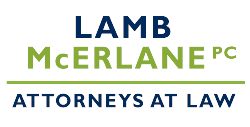National Labor Relations Board Restricts Use of Standard Provisions in Severance Agreements

In a ruling that sent shock waves among employers, the National Labor Relations Board, which has authority over both union and non-union private sector employees, issued a decision calling into question the validity of standard confidentiality and non-disparagement clauses routinely used in employee severance agreements. The Board held that if confidentiality and non-disparagement clauses could be construed to broadly restrict a former employee’s rights to discuss the terms of that agreement or otherwise say negative things about his or her former employer, then inclusion of these provisions constitutes a violation of the National Labor Relations Act.
In McLaren Macomb, 372 NLRB No. 58 (2023), a divided Board found that the non-disparagement and confidentiality provisions in this particular severance agreement unlawfully infringed on an employee’s right to discuss working conditions as guaranteed by Section 7 of the National Labor Relations Act.
Essentially, the Board determined that the non-disparagement provision substantially interfered with employees’ Section 7 rights, specifically, that “public statements by employees about the workplace are central to the exercise of employee rights under the Act.” The Board found the prohibition against making any “statements to [the] Employer’s employees or to the general public which could disparage or harm the image of [the] Employer” was too far-reaching, not appropriately limited, and contained no definition of “disparagement”.
The Board further determined that the confidentiality provision similarly would prohibit employees from discussing the terms of the severance agreement with their former coworkers, which would impair the rights of the former coworkers to seek support in similar circumstances.
In examining this language, the Board concluded that the non-disparagement and confidentiality provisions “interfere with, restrain, or coerce employees’ exercise of Section 7 rights”. As with all severance agreements, which provide employees with benefits to which they would not otherwise be entitled, the employees would not receive the offered severance benefits unless they agreed to the provisions in the agreement. As a result, the Board determined that even the proffer of the agreement with the confidentiality and non-disparagement clauses included, violated the employees’ rights under the Act.
The Act generally does not affect private sector supervisors, managers, or public sector employees and this decision still is subject to appeal. However, the scope of the decision is broad and will affect most private sector employees and employers, regardless of union or non-union status. Employers should work closely with employment counsel to consider the impact of this decision when drafting and presenting severance agreements to departing employees.
Learn more at Lamb McErlane.
__________

This article is for educational purposes only and is not legal advice. If you are in need of employment related legal advice, contact Lamb McErlane PC partner Mary-Ellen H. Allen: mallen@lambmcerlane.com; 610-430-8000. Mary-Ellen is co-chair of Lamb McErlane’s Employment Law Department and a member of the litigation department. She concentrates her practice in employment law and commercial litigation. lambmcerlane.com
Connect With Your Community
Subscribe to stay informed!
"*" indicates required fields


























![95000-1023_ACJ_BannerAd[1]](https://vista.today/wp-content/uploads/2023/03/95000-1023_ACJ_BannerAd1.jpg)






















